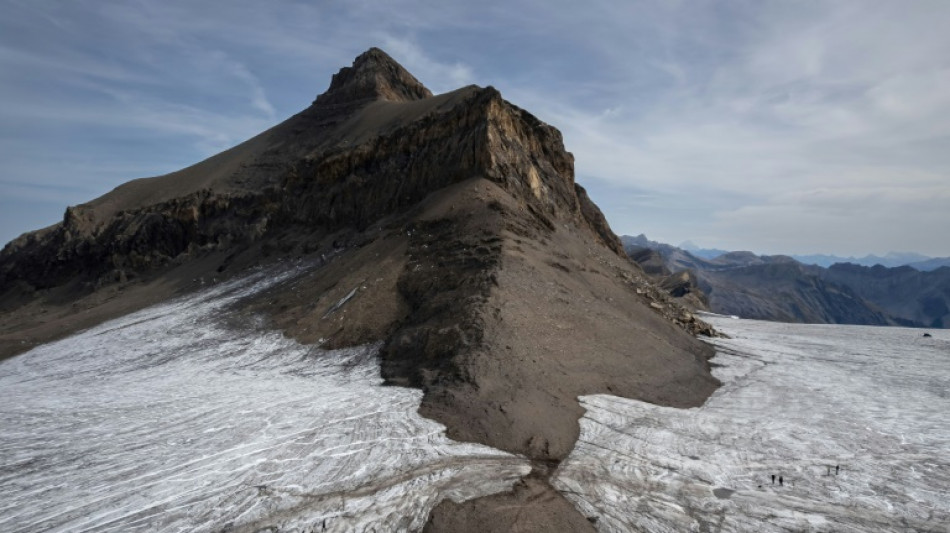
-
 At least 24 killed in Kashmir attack on tourists
At least 24 killed in Kashmir attack on tourists
-
Rahul powers Delhi to big win over Lucknow in IPL

-
 Colombian cycling star 'Lucho' Herrera denies murder conspiracy
Colombian cycling star 'Lucho' Herrera denies murder conspiracy
-
Trump, Zelensky to attend Pope Francis's funeral Saturday

-
 US State Department to cut positions, rights offices
US State Department to cut positions, rights offices
-
Ukraine ready for direct talks with Russia only after ceasefire: Zelensky
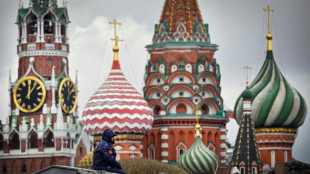
-
 Myanmar Catholics mourn pope who remembered their plight
Myanmar Catholics mourn pope who remembered their plight
-
Pope's Vatican 'family' pay tearful respects

-
 The world leaders set to attend Pope Francis's funeral
The world leaders set to attend Pope Francis's funeral
-
'Like a storm': Witnesses describe deadly Kashmir attack

-
 Volkswagen unveils its electric counter-offensive in China
Volkswagen unveils its electric counter-offensive in China
-
Landmark Nepal survey estimates nearly 400 elusive snow leopards

-
 Napoleon letter auction recalls French pope detention
Napoleon letter auction recalls French pope detention
-
Saka injury 'nothing serious' as Arteta weighs Arsenal options

-
 Rubio to cut positions, rights offices at US State Department
Rubio to cut positions, rights offices at US State Department
-
Trump says 'on the same side of every issue' with Netanyahu after call

-
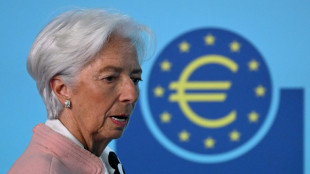 ECB's Lagarde hopes Trump won't fire US Fed chief Powell
ECB's Lagarde hopes Trump won't fire US Fed chief Powell
-
Gold hits record as Trump fuels Fed fears, Wall Street rebounds

-
 The world leaders set to attend Francis's funeral
The world leaders set to attend Francis's funeral
-
East Timor mourns Pope Francis months after emotional visit

-
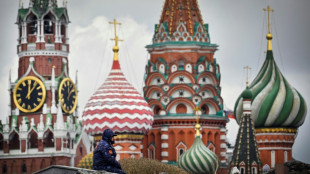 US envoy to visit Moscow as US pushes for ceasefire
US envoy to visit Moscow as US pushes for ceasefire
-
At least 24 killed in Kashmir attack on tourists: Indian police source

-
 Philippine typhoon victims remember day Pope Francis brought hope
Philippine typhoon victims remember day Pope Francis brought hope
-
IMF slashes global growth outlook on impact of Trump tariffs

-
 BASF exits Xinjiang ventures after Uyghur abuse reports
BASF exits Xinjiang ventures after Uyghur abuse reports
-
Nordics, Lithuania plan joint purchase of combat vehicles

-
 Gold hits record, stocks diverge as Trump fuels Fed fears
Gold hits record, stocks diverge as Trump fuels Fed fears
-
World could boost growth by reducing trade doubt: IMF chief economist

-
 IMF slashes global growth outlook on impact of US tariffs
IMF slashes global growth outlook on impact of US tariffs
-
IMF slashes China growth forecasts as trade war deepens
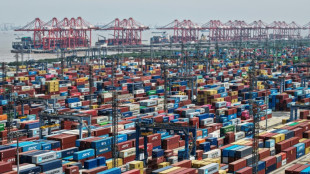
-
 Skipper Shanto leads Bangladesh fightback in Zimbabwe Test
Skipper Shanto leads Bangladesh fightback in Zimbabwe Test
-
US VP Vance says 'progress' in India trade talks

-
 Ex-England star Youngs to retire from rugby
Ex-England star Youngs to retire from rugby
-
Black Ferns star Woodman-Wickliffe returning for World Cup

-
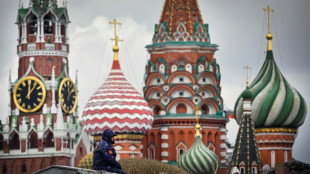 Kremlin warns against rushing Ukraine talks
Kremlin warns against rushing Ukraine talks
-
Mbappe aiming for Copa del Rey final return: Ancelotti

-
 US universities issue letter condemning Trump's 'political interference'
US universities issue letter condemning Trump's 'political interference'
-
Pope Francis's unfulfilled wish: declaring PNG's first saint

-
 Myanmar rebels prepare to hand key city back to junta, China says
Myanmar rebels prepare to hand key city back to junta, China says
-
Hamas team heads to Cairo for Gaza talks as Israel strikes kill 26
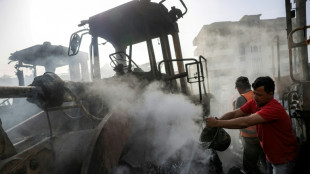
-
 Pianist to perform London musical marathon
Pianist to perform London musical marathon
-
India's Bumrah, Mandhana win top Wisden cricket awards

-
 Zurab Tsereteli, whose monumental works won over Russian elites, dies aged 91
Zurab Tsereteli, whose monumental works won over Russian elites, dies aged 91
-
Roche says will invest $50 bn in US, as tariff war uncertainty swells
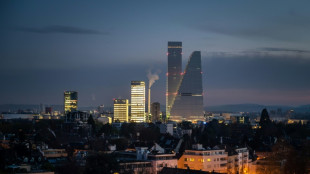
-
 Pope Francis's funeral set for Saturday, world leaders expected
Pope Francis's funeral set for Saturday, world leaders expected
-
US official asserts Trump's agenda in tariff-hit Southeast Asia

-
 World leaders set to attend Francis's funeral as cardinals gather
World leaders set to attend Francis's funeral as cardinals gather
-
Gold hits record, stocks mixed as Trump fuels Fed fears

-
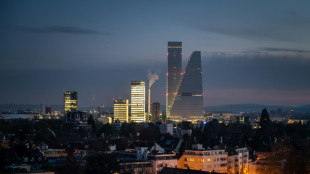 Roche says will invest $50 bn in US over next five years
Roche says will invest $50 bn in US over next five years
-
Fleeing Pakistan, Afghans rebuild from nothing
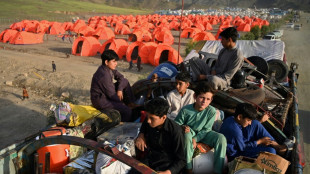

All regions experienced water extremes in 2021: UN
All regions of the world saw water extremes last year -- both floods and droughts -- and billions of people had insufficient freshwater, the United Nations said on Tuesday.
Large areas of the planet recorded drier than normal conditions in 2021, the UN's World Meteorological Organization said in its first annual State of Global Water Resources report.
The report assesses the effects of changes in the climate, environment and society on the Earth’s freshwater resources -- limited supplies that are under growing demand -- so they can be managed better.
"The impacts of climate change are often felt through water -- more intense and frequent droughts, more extreme flooding, more erratic seasonal rainfall and accelerated melting of glaciers -- with cascading effects on economies, ecosystems and all aspects of our daily lives," said WMO head Petteri Taalas.
"And yet there is insufficient understanding of changes in the distribution, quantity and quality of freshwater resources."
Some 3.6 billion people face inadequate access to freshwater at least one month per year. That is forecast to rise to more than five billion by 2050, the report said.
Between 2001 and 2018, 74 percent of all natural disasters were water-related, according to UN studies.
In 2021, all regions saw devastating water extremes, the report said.
There were record-breaking floods in western Europe and the Amazon, while water levels in rivers in Paraguay and southern Brazil dropped to an all-time low.
The report assessed streamflow -- the volume of water flowing through a river -- over a 30-year period.
Drops in water volumes were twice as widespread as rises.
Major river basins in the Americas and central Africa saw water volumes shrink. Rivers in northern India and southern Africa saw above average increases.
- Frozen resources -
Terrestrial water storage -- all water on the land surface and in the subsurface -- shrank more than it grew, the report said.
Negative hotspots included Patagonia, the Ganges and Indus headwaters, and the southwestern United States.
"Some of the hotspots are exacerbated by (over-extraction) of groundwater for irrigation. The melting of snow and ice also has a significant impact in several areas, including Alaska, Patagonia and the Himalayas," the WMO said.
The world’s biggest natural reservoir of freshwater is the cryosphere -- glaciers, snow cover, ice caps and permafrost -- and changes to this reservoir affect food production, health and the natural world, the report said.
Around 1.9 billion people live in areas where drinking water is supplied by glaciers and snow melt but these glaciers are melting increasingly fast, it stressed.
It urged authorities to speed up the introduction of drought and flood early warning systems to help reduce the impact of water extremes.
O.Lorenz--BTB




